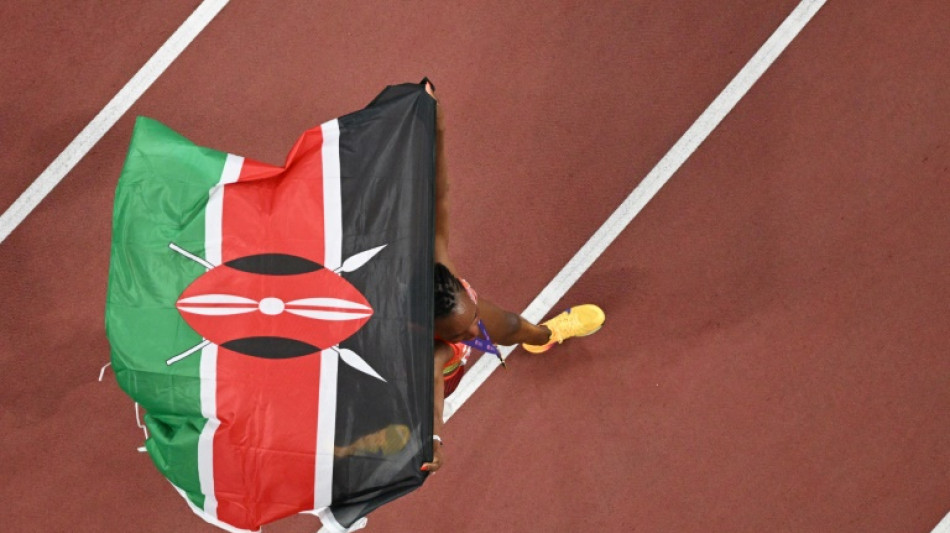

Kenyan athletes shine in Tokyo, but anti-doping efforts remain in the dark
Kenyan athletes may have shone at the world championships in Tokyo, winning seven golds, but persistent allegations of doping still cast a shadow as the global anti-doping agency threatens to sanction the east African country.
The warning is anything but trivial for a nation whose runners embody Kenyans hopes for lifting families out of poverty, a desperate desire that can drive some over the line.
Over the years, and following numerous scandals, Kenya has repeatedly promised and invested millions to clear up the issue -- but it remains high up on the World Anti-Doping Agency (WADA) watchlist.
"Most of our athletes are running to escape poverty and support their families, and they, as a result, will use all manner of things, including doping," said Kenya's three-time Boston Marathon winner Ibrahim Hussein Kipkemtboi.
"Winning is a lifetime chance," he told AFP.
Some 140 Kenyan athletes, mainly long-distance runners, have been suspended by the Athletics Integrity Unit (AIU) since 2017 -- more than any other nation.
Among them are figures like 2016 Olympic marathon champion Jemima Sumgong, marathon world record holder Ruth Chepngetich -- provisionally suspended in July by the Athletics Integrity Unit (AIU) after testing positive for a diuretic -- and Benard Kibet Koech, fifth in the 10,000m at the Paris Olympics, who was suspended in June by the AIU.
- 'An emergency' –
"This thing has got out of hand and we are not doing enough," Kenyan sports journalist Peter Njenga told AFP, describing it as "an emergency".
"Doping needs to be fought the same way Kenya campaigned against HIV," he said.
Last week, just before the start of the world championships, WADA threatened to sanction Kenya's national agency (ADAK) for non-compliance, giving the country three weeks to comply with international codes.
Should WADA make good on its warning, Kenyan athletes could be banned from international competition.
"There's a big danger that we may not host any event until the recommendations are fully met," Barnaba Korir, a member of the executive committee of Athletics Kenya (AK) told AFP, describing the warning simply as "bad news".
Notably, he said, the country's potential bids for the 2029 or 2031 world athletics championships would fail.
The government has promised to act, investing some $25 million over five years to combat the problem.
The national agency ADAK –- created in 2016, under pressure from the International Olympic Committee (IOC) -– pointed to its increased out-of-competition tests, from 400 to 4,000 annually, as an example.
But Kenya remains on WADA's watchlist.
- 'Integrity' –
"We are very happy with our work in testing, education and creating awareness that in the last three years no Kenyan athlete has been returned home from the Olympic and Work championships for failing a test," said Peninah Wahome, ADAK's acting director.
Her agency, in partnership with Kenya's Ministry of Sports, is working "very hard" to follow WADA's recommendations, she told AFP.
But while ADAK has seen some progress in recent years, the country's level of compliance with international standards remains "not good enough," said AIU head Brett Clothier.
"We need the anti-doping agency to be at the same elite level as the athletes," he told reporters in Tokyo.
At the Tokyo world championships, Kenya finished in second place behind the United States in the overall standings on Sunday -- with seven golds, two silvers and two bronzes. Women dominated the haul.
"The question we should be asking is: is it the training, doping, or the attitude of the athletes that's causing this," asked journalist Njenga.
"Doping has eaten into the roots of Kenyan athletics," he said.
V.Vazquez--GM




